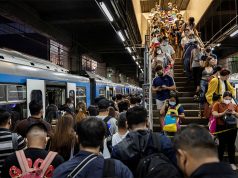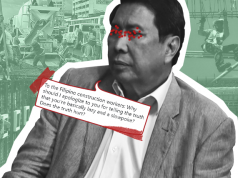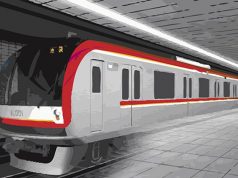
Kilos Na Manggagawa (KNM) spokesperson Rey Cagomoc said on Thursday that workers who are in regimes of low wages and contractualization potentially bear the brunt of tax impositions, thus there is no long-term gain in raising taxes if the workers are made to pay more than the rich.
Cagomoc raised this point in reaction to the Tax Reform for Acceleration and Inclusion Act (TRAIN) championed by the Department of Finance, even as KNM led workers in holding a picket-protest in front of the Department of Finance central office on Thursday morning, August 10.
KNM claims to be a nationwide organization of workers in private, public, agricultural, informal, transport, health, education, migrant, women and youth.
“The adherence of the Department of Finance to old neoliberal economic framework will only worsen social inequality,” said Cagomoc. “TRAIN does not favor the workers and people. While, at face value, it will reduce the personal income tax of minimum wage earners, the supposed savings will, however, be wiped out by the imposition of higher consumption taxes.”
Cagomoc pointed out that TRAIN aims to remove VAT exemptions and raise the tax on diesel and gas, and sugar products. In effect, the workers will end up paying more with their already meager wages, he said.
“TRAIN and all neoliberal tax reforms are intended to impose a higher tax burden on workers, and to reduce the tax for multinational corporations and big local capitalists,” he said.
“The working poor will be burdened with additional taxes. They will also take the larger share of tax compared to the wealthy,” he said.
TRAIN was approved at the House of Representatives (HOR), and is to be taken up at the Senate. “We call on the Senate to junk TRAIN. No amount of tempering will make the bill acceptable for workers,” Cagomoc said. “What’s needed are pro-worker and pro-people tax reforms and economic policies grounded on social justice.”









